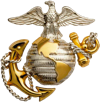Explore Careers
Environmental Health and Safety Officers
Explore Careers
Environmental Health and Safety Officers
Agriculture, Food & Natural Resources
What do Environmental Health and Safety Officers do in the Military?
Where do Environmental Health and Safety Officers work?
Environmental health and safety officers normally work in offices or research laboratories. They work outdoors while conducting environmental studies and surveys or inspecting facilities.
How much do they make?
Median Military Salary
This is the median, or the midpoint, of the salary range for this career.
Note that the median salary does not include bonuses, special pays, health or dental benefits — which are a standard part of military compensation.
This is the median, or the midpoint, of the salary range for this career.
Note that the median salary does not include bonuses, special pays, health or dental benefits — which are a standard part of military compensation.
$77,044
Military Salary Range
This is the range based on years of service, degree level, special pays, family status and location.
Note that the median salary does not include bonuses, special pays, health or dental benefits — which are a standard part of military compensation.
This is the range based on years of service, degree level, special pays, family status and location.
Note that the median salary does not include bonuses, special pays, health or dental benefits — which are a standard part of military compensation.
$20,988 - $356,862
How Military Pay is More Than Just a Salary
Base pay is the standard income you'll earn as a service member, providing a stable foundation to start achieving your financial goals.
- Set based on rank and years of service.
- Paid every month.
Allowances are additional payments to help cover living expenses like housing and food.
- Tax-free payments.
- Varies by location and family status.
Special pay provides extra compensation for unique skills, hazardous duties, or challenging assignments.
- Based on specialized roles.
- Varies by position and duty.
What training do Environmental Health and Safety Officers gain in the Military?
Officers typically enter the Military after they have completed a four-year college degree; enlisted service members can transition to officer positions through a variety of pathways and earn a degree while serving. Like other officers, fleet maintenance managers complete a comprehensive training program covering responsibilities, military structure and etiquette, traditions, and leadership development. Additional training consists of classroom and field training. Job-specific training content may include:
- Methods and procedures for health threat assessment
- Disease and environmental surveillance techniques
- Development of countermeasures for actual and potential threats
Military Training for Enlisted Service members
All enlisted service members complete basic military training, which includes time spent in a classroom and in the field, and covers tactical and survival skills, physical training, military life and customs, and weapons training.
What skills help Environmental Health and Safety Officers succeed?
- Interest in conducting research or analytical studies
- Interest in protecting the environment
- Interest in work requiring accuracy and attention to detail















